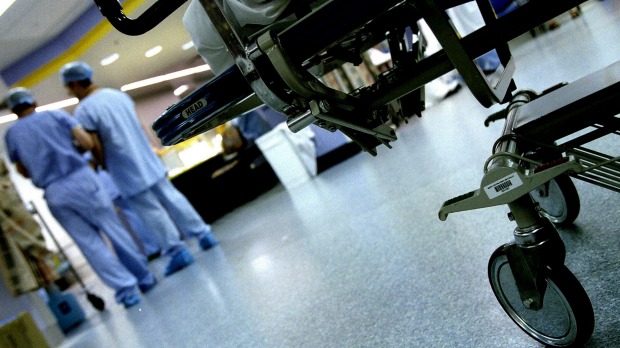
Up to 3000 West Australian hospital staff could lose their jobs or have hours reduced in the wake of state government-implemented health cuts, according to the WA Medical Association president.
The WA government confirmed on Sunday more than 1100 full-time equivalent (FTE) hospital jobs will be cut in Perth’s south in a bid to improve the state’s inefficient health system, but Michael Gannon says the figure is misleading.
“The minister is being a little bit dishonest here, if we’re talking about 1100 FTE – if all of them are delivered – that might mean 2000 or 3000 people lose their jobs or have their hours cut,” Dr Gannon said.
“These are serious cuts, serious insecurity and instability for thousands of West Australians and, just as importantly, it means a cut to clinical services.”
Health Minister Kim Hames said 250 voluntary redundancies would be offered within Perth’s South Metropolitan Health Service, while the majority of job cuts would come from tweaking health rostering.
More than 290 jobs are expected to be cut from the new Fiona Stanley Hospital, while Royal Perth will shoulder the majority of the cuts, with almost 570 jobs expected to go.
In total the state government expects 526 clinical jobs to be cut from the southern region, in addition to 637 non-clinical service roles.
Mr Hames told reporters on Sunday that WA had the second highest cost per patient rate in Australia, 14 per cent above the national average, with nurses earning up to 15 per cent more than their Victorian counterparts.
“The reality is that we are not as efficient in managing our system as (other states) are,” Dr Hames said.
Dr Gannon acknowledged that WA medical staff were well paid and said the AMA had no intention of “behaving industrially” in future wage discussions but added the government needed to be more transparent in future decisions involving jobs in the health system.
“We understand the difficult fiscal environment the government finds itself in and we are prepared to act responsibly,” he said.
Opposition health spokesman Roger Cook said the “breathtaking” job cuts meant WA patients and hospital workers would be forced to bear the brunt of the state’s economic troubles.
“If you’re cutting hundreds of millions of dollars out of the South Metropolitan Health Service, this means that patients will wait longer for care, this means the ambulance queues will continue to grow and this means that health services in WA will suffer.”
Dr Hames said unless the WA health sector – which accounts for more than 28 per cent of state expenditure – made significant changes to its operating costs, it would affect areas including education and policing.
